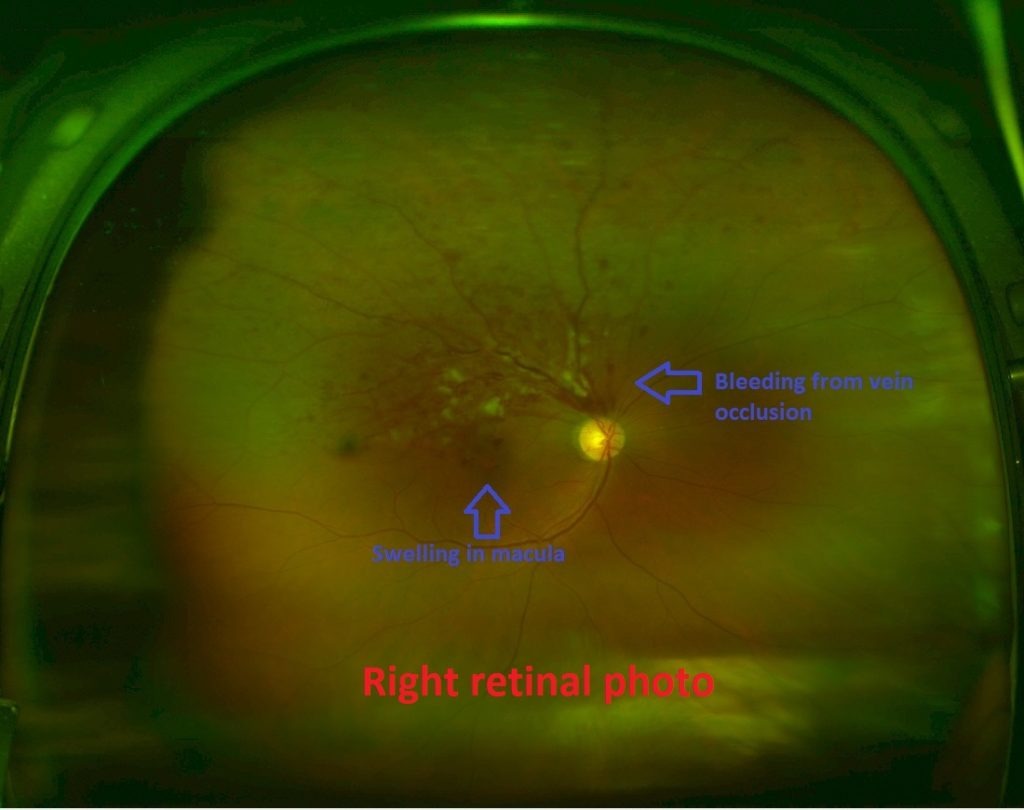
A 50 year-old male patient complained of blurred vision in the right eye which has been gradual over the year. He had no other symptoms.

Patient’s right eye showing Branch Retinal Vein Occlusion

Patient’s left eye with normal findings
A stroke can occur in the eye when blockages occur in the arteries or veins in the retina. The retina is the light-sensing layer in the back of the eye and it is nourished by arteries. Hardening of the retinal arteries due to high blood pressure or diabetes can compress on veins and cause the blood in the veins to leak out onto the retina. This is called a retinal vein occlusion. Patients with branch retinal vein occlusion have blurred central and peripheral vision. There is usually no pain involved. Patients with branch retinal vein occlusion must be evaluated by a family physician for high blood pressure, artery disease, and a complete blood work-up must be performed to determine the underlying cause of the blockage.
The macula is the area of the retina responsible for central vision located in the middle of the retina. The macula can swell up during a branch retinal vein occlusion due to blood leaking into this area called macular edema. The image shows blood in the macular area causing vision to be blurred. 60% of branch retinal vein occlusions have macular edema which can be sight threatening. For many people, the blood that has leaked out onto the retinal will resolve in a few months as long as the cause of the vein occlusion has been determined and treated.
Our patient was referred to a retinal specialist for an evaluation. Due to the amount of bleeding in the macula and decreased vision in the right eye, an injection of Avastin was performed in the right eye to reduce the swelling in the macula to prevent vision loss. Avastin is a medication that is used to reduce the amount of blood vessel bleeding in the macula to improve and restore vision. This case underscores the important if annual comprehensive eye examinations if you have high blood pressure, diabetes, or high cholesterol to prevent vision loss.




